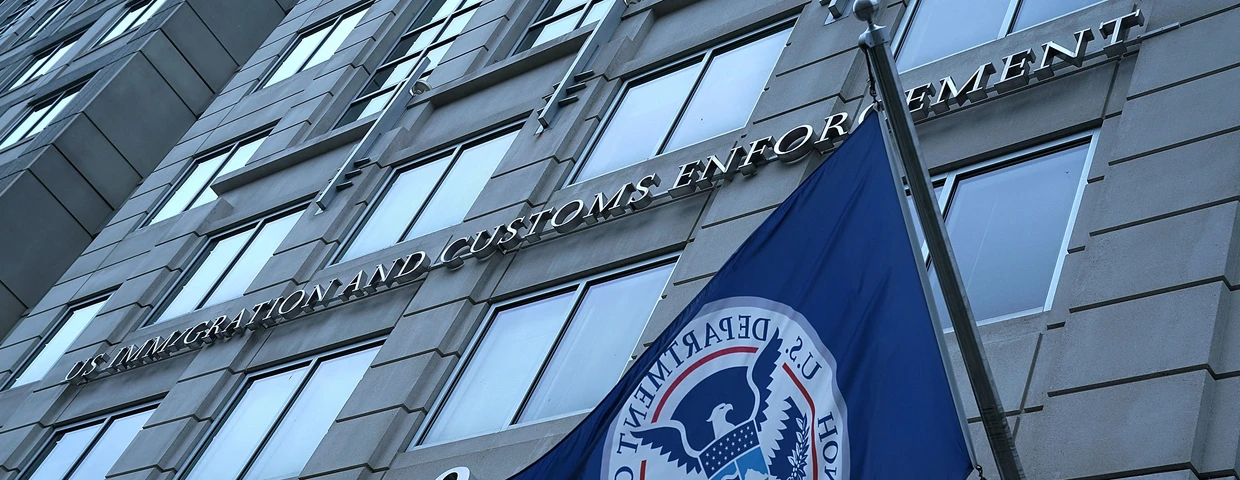On Saturday morning, CNN hosted 22-year-old Ward Sakeik and her attorney, Eric Lee, in a discussion on the significance of Sakeik’s five-month imprisonment by Immigration and Customs Enforcement (ICE). Sakeik, a stateless Palestinian, was released on Tuesday after a harrowing experience that underscored the brutal reality of U.S. immigration policy. She faced deportation to the "borders of Israel"—a threat that not only meant forced exile but also exposure to the ongoing genocide actively supported by the U.S. government.
Ward Sakeik"s Journey Through Hell
Since her family fled Saudi Arabia in 2011, Sakeik has lived, worked, and navigated the complexities of life in the United States. Notably, she has complied with every demand placed upon her by immigration authorities since arriving in the country at the age of eight. Yet, simply for taking a domestic flight to the US Virgin Islands for her honeymoon, she was thrust into an ICE detention center where she described conditions that can only be classified as inhumane.
During her detention, Sakeik spoke out about being "moved around like cattle" while being denied basic necessities like food, water, and religious materials. She reported witnessing women being denied medication and forced to sleep on cold, rusty beds. These harrowing accounts reflect a systemic failure of a government that claims to uphold human rights. Sakeik"s testimony has ignited outrage among the working class in the U.S. and around the world, highlighting the urgent need for accountability in the immigration system.
DHS"s Attempt to Discredit Truth
The Department of Homeland Security (DHS) has responded to Sakeik"s allegations with an alarming level of contempt. In a statement to Newsweek, DHS Assistant Secretary Tricia McLaughlin claimed that "ensuring the safety, security, and well-being of individuals in our custody is a top priority at ICE," dismissing Sakeik’s trauma as mere "sob stories." This response not only shows a blatant disregard for the lived experiences of those in detention but also reveals a deeper issue of institutional denial that pervades the ICE system.
As reported by VisaVerge, Sakeik"s case is emblematic of broader immigration policies that have become increasingly aggressive under the Trump administration. These policies, which fall under Project 2025, have led to expedited removals and reduced protections for immigrants, particularly stateless individuals like Sakeik. The implications of these policies are dire, not only for the individuals detained but for the fabric of American democracy.

SACKSTEIN SACKSTEIN & LEE - Updated July 2025 - 154-08 N Blvd ...
Public Outcry and Emerging Solidarity
In the days following Sakeik"s release, her powerful testimony has gone viral on social media, garnering tens of thousands of views. Comments on platforms like TikTok express outrage at her treatment and broader systemic issues facing immigrants. One commenter poignantly noted, "These are crimes against humanity and ‘I was following orders’ is not a viable defense." As public sentiment grows, the potential for collective action becomes palpable, signaling that many are ready to challenge an unjust system.
Lee’s remarks during the CNN segment resonate deeply with those who understand the stakes involved in Sakeik"s detention. He asserted, "This is a government which is actively undermining and violating the American Constitution and the Bill of Rights." He warned that Sakeik"s case exemplifies a grave reality for many immigrants currently at risk of being disappeared by the state.
The Broader Implications of Sakeik"s Case
Ward Sakeik represents just one of the many faces of a broken immigration system that has become a frontline in the struggle for human rights in the United States. The treatment she received reflects a government that is not only failing its citizens but also violating its own democratic principles. This situation cannot be divorced from the ongoing geopolitical realities that shape U.S. foreign policy, particularly regarding Palestine. The lack of recognition for Palestinian statehood complicates the lives of individuals like Sakeik, who finds herself in a legal limbo due to a policy framework that actively denies her existence.
As the U.S. continues to navigate its complicity in international conflicts, the stories of individuals like Sakeik serve as a stark reminder that the fight for justice is far from over. The mobilization of public outrage against the treatment of immigrants is beginning to take shape, and with it, the potential for significant change in how the U.S. treats those seeking refuge.

ICE Rule on Civil Immigration Penalties Cleared by White House

![[Video] Federal officers deploy sting balls and flash grenades at Whipple Building](/_next/image?url=%2Fapi%2Fimage%2Fthumbnails%2Fthumbnail-1768340555229-vhfcc-thumbnail.jpg&w=3840&q=75)
![[Video] Crowd-control weapons used in Minneapolis as anti-ICE protesters attack police vehicle](/_next/image?url=%2Fapi%2Fimage%2Fthumbnails%2Fthumbnail-1768336302231-akxf7s-thumbnail.jpg&w=3840&q=75)

![[Video] Protests erupt in Minneapolis after ICE detains teenager, multiple arrests made](/_next/image?url=%2Fapi%2Fimage%2Fthumbnails%2Fthumbnail-1768331835371-z9ylqg-thumbnail.jpg&w=3840&q=75)


![[Video] Gunfire between Iraqi security forces and Sadr militias in Baghdad](/_next/image?url=%2Fapi%2Fimage%2Fthumbnails%2Fthumbnail-1768343508874-4redb-thumbnail.jpg&w=3840&q=75)
